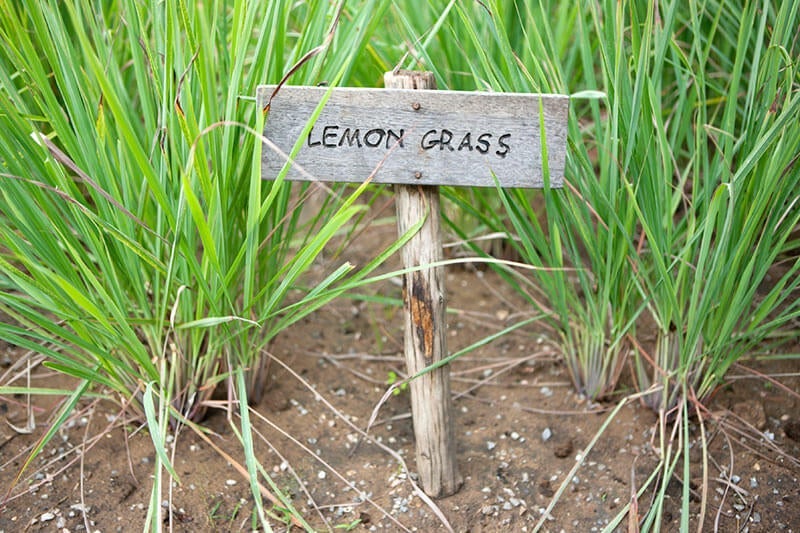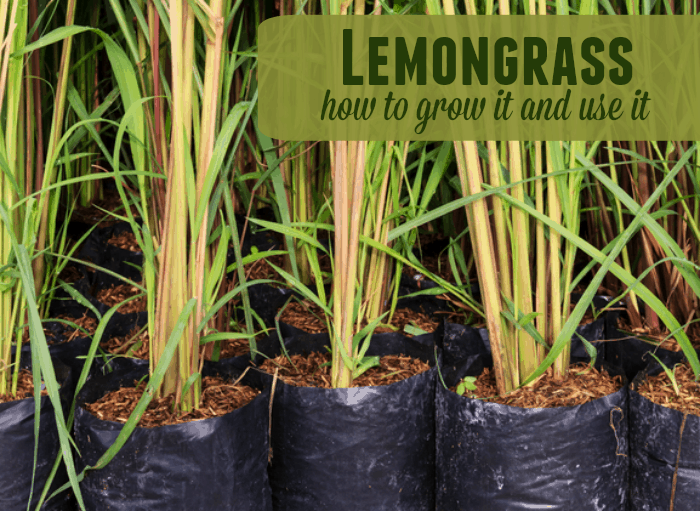Imagine stepping out into your yard and being greeted by the fresh, invigorating scent of lemongrass. It’s not just a sensory delight; it’s a powerhouse plant that brings a multitude of benefits right to your doorstep.
From adding a unique flavor to your culinary creations to repelling pesky insects naturally, lemongrass is a versatile herb that deserves a spot in your garden. But what makes it so special? And why should you consider planting it today?
In this blog post, we’ll uncover the compelling reasons why lemongrass is a must-have for your outdoor oasis. Get ready to discover how this simple plant can transform your yard and enhance your daily life in unexpected ways. Keep reading, and let the secrets of lemongrass unfold.
Health Benefits Of Lemongrass
Lemongrass offers numerous health benefits, making it a great addition to your garden. It helps reduce stress and improve digestion. Its natural oils can keep mosquitoes away, providing a pleasant outdoor environment.
Planting lemongrass in your yard is not just an aesthetic choice; it’s a commitment to your health. This aromatic plant offers a myriad of health benefits that can boost your well-being. Imagine stepping outside and picking fresh lemongrass to enhance your health. Wouldn’t it be wonderful to have a natural remedy growing right outside your door? Let’s dive into some compelling reasons why you should consider planting lemongrass, focusing on its health benefits.Boosts Immunity
Lemongrass is packed with antioxidants. These are essential for maintaining a robust immune system. Antioxidants help your body fight off harmful free radicals. This means fewer colds and flu for you. Fresh lemongrass tea can be your go-to drink during the cold season. It’s like giving your immune system a refreshing boost. Imagine being the one who stays healthy while everyone else is catching the sniffles.Aids Digestion
Have you ever had a heavy meal and wished for something to ease your stomach? Lemongrass can be your digestive ally. It stimulates digestion and helps reduce bloating. Adding lemongrass to your meals or drinking it as tea can make a noticeable difference. It’s not just about feeling good; it’s about feeling light and ready for the day ahead. No more post-meal sluggishness.Reduces Inflammation
Inflammation can be the root cause of many health issues. Lemongrass contains compounds that fight inflammation. This can be particularly beneficial if you experience joint pain or muscle soreness. Imagine coming home after a long day and sipping on lemongrass tea to soothe those aches. It’s a natural way to find relief without reaching for medication. Wouldn’t you prefer a garden solution over a pharmacy one? Incorporating lemongrass into your life is about more than just flavor. It’s about enhancing your health and well-being in practical ways. So why not take a step towards a healthier you by planting lemongrass in your yard?
Credit: www.wondercide.com
Culinary Uses Of Lemongrass
Planting lemongrass in your yard offers fresh, aromatic stalks for tea, soups, and curries. It enhances dishes with a citrusy flavor. Perfect for culinary enthusiasts seeking natural ingredients.
Planting lemongrass in your yard opens the door to a world of delightful culinary adventures. Its citrusy aroma and unique flavor can transform ordinary dishes into extraordinary experiences. Whether you’re an avid cook or someone who loves experimenting in the kitchen, lemongrass offers a variety of uses that can elevate your culinary skills. Let’s dive into some exciting ways you can integrate lemongrass into your cooking routine.Enhances Flavor In Dishes
Lemongrass adds a fresh, vibrant taste to your meals. Try chopping it finely and adding it to soups or stir-frys for a refreshing twist. The subtle citrus notes can make homemade curries and sauces sing. Next time you’re cooking, consider replacing lemon zest with lemongrass to surprise your taste buds. A friend once shared how a simple lemongrass-infused chicken dish became the highlight of her dinner party. Have you thought about what dish it could transform in your kitchen?Tea And Beverages
Steep lemongrass in hot water for a soothing herbal tea. Its calming properties make it perfect for unwinding after a long day. Add a few stalks to iced tea for an extra refreshing zing. Your guests will be amazed at the unique flavor profile. Mix lemongrass into cocktails or mocktails for a sophisticated touch. Imagine impressing your friends with a lemongrass mojito at your next gathering.Infused Oils And Marinades
Create your own lemongrass-infused oil to drizzle over salads or roasted vegetables. The aroma alone will make your kitchen smell heavenly. Marinate fish or tofu in lemongrass, garlic, and olive oil for a delightful meal prep. It’s a simple way to add gourmet flair to everyday dinners. A relative once marinated beef with lemongrass for a barbecue, and it became a family favorite. What new tradition could you start with lemongrass in your marinades? Planting lemongrass isn’t just about growing an herb; it’s about enhancing your culinary journey. How will you use it to spice up your cooking adventures?Aromatic And Therapeutic Properties
Lemongrass offers soothing scents and health benefits, making it a great choice for your garden. Its calming aroma can enhance relaxation, while its therapeutic properties may boost well-being.
Planting lemongrass in your yard offers many benefits. Known for its aromatic and therapeutic properties, lemongrass can enhance your outdoor space. This versatile plant not only pleases the senses but also provides practical uses. Let’s explore why lemongrass is a valuable addition to your garden.Essential Oil Benefits
Lemongrass is rich in essential oils. These oils have a refreshing citrus scent. They can uplift your mood and reduce stress. Many people use lemongrass oil for its calming effects. It can also help improve concentration. This makes it ideal for creating a peaceful garden retreat.Natural Insect Repellent
Lemongrass naturally repels insects. Mosquitoes dislike its strong scent. Planting lemongrass helps keep your yard bug-free. You can enjoy outdoor time without pesky insects. This makes it perfect for family gatherings and picnics. Lemongrass can also deter ants and other pests.Aromatherapy Applications
Lemongrass is popular in aromatherapy. Its scent promotes relaxation and clarity. You can crush the leaves for a quick aroma boost. The plant’s natural fragrance can soothe your mind. This can enhance meditation or yoga sessions. Plant lemongrass to create a serene environment.
Credit: bonnieplants.com
Environmental Benefits
Planting lemongrass boosts the environment by repelling pests naturally, reducing the need for chemical sprays. Its dense roots prevent soil erosion, maintaining healthy ground. Lemongrass also purifies air, adding a fresh scent to your yard.
Planting lemongrass in your yard offers numerous environmental benefits. This aromatic grass not only enhances your garden’s beauty but also contributes positively to the ecosystem. Let’s explore how lemongrass can be a green ally in your yard.Soil Erosion Control
Lemongrass has strong roots. These roots hold the soil together effectively. By planting it, you prevent soil erosion. This is especially useful on slopes or in areas with loose soil. The dense root system acts like a natural barrier. It keeps your soil intact and healthy.Companion Planting
Lemongrass is a great companion plant. It deters pests naturally. The scent of lemongrass keeps insects away. This reduces the need for chemical pesticides. Plant it near vegetables or herbs. It will protect them and boost their growth.Biodiversity Support
Lemongrass supports biodiversity in your yard. Its flowers attract beneficial insects. Bees and ladybugs are frequent visitors. These insects help pollinate your garden plants. They also control harmful pests. This creates a balanced and thriving ecosystem.Growing Lemongrass At Home
Lemongrass offers a fragrant addition to your garden, enhancing both aesthetics and culinary delights. It’s easy to grow and repels insects naturally, making it a practical choice for your yard. Its refreshing aroma and health benefits make lemongrass a valuable plant to cultivate at home.
Growing lemongrass at home can be a rewarding venture, filling your yard with a delightful citrus aroma and providing a fresh ingredient for your kitchen. This tropical plant not only enhances the beauty of your garden but also serves practical purposes, like repelling mosquitoes and adding flavor to your teas and dishes. Let’s dive into some practical tips on how to successfully grow lemongrass in your own backyard.Choosing The Right Location
Lemongrass thrives in warm, sunny spots. Make sure to select a location in your yard that gets at least six to eight hours of sunlight each day. If your space tends to be shady, consider planting lemongrass in a pot that you can move around to catch the sun. A well-draining soil is essential. Sandy or loamy soils are preferable, as they prevent waterlogging, which can harm the plant. Test your soil by checking how quickly water drains after a rain or watering session.Planting Techniques
Start with a healthy lemongrass stalk from the store or garden center. Look for stalks that are firm with a bit of root still attached at the bottom. Plant the stalks about two inches deep into the soil, spacing them about a foot apart to allow room for growth. If you live in a cooler climate, start your lemongrass indoors and transfer it outside once the weather warms up. After planting, water the stalks well to help establish the roots. If you’ve planted in a pot, ensure it has drainage holes to prevent soggy roots.Watering And Maintenance
Lemongrass likes moist, but not waterlogged, conditions. Water your plants regularly, especially during dry spells, to keep the soil consistently moist. Fertilize with a balanced, all-purpose fertilizer every few months to promote healthy growth. Trim any dead or brown leaves to encourage new shoots to develop. Check your plants for pests like aphids, which can be managed with a simple spray of water or a homemade soap solution. Regularly inspect your lemongrass to ensure it remains healthy and vibrant. Growing lemongrass at home is not only simple but also rewarding. Imagine stepping into your garden and picking fresh lemongrass for tonight’s dinner. What are you waiting for? Start planting today!Harvesting And Storing Lemongrass
Planting lemongrass offers multiple benefits for your yard. Its strong citrus scent repels pests naturally, enhancing garden health. After harvesting, store lemongrass easily by drying or freezing, ensuring year-round usage.
Harvesting and storing lemongrass is a rewarding process that can enhance your culinary and health endeavors. Imagine stepping into your garden, scissors in hand, ready to harvest lemongrass that you nurtured from a tiny seedling. The fresh, citrusy aroma fills the air, and you realize the satisfaction of growing your own ingredients. It’s not just about the harvest; it’s about preserving that freshness for future use. Let’s delve into the best practices for harvesting and storing lemongrass effectively.When To Harvest
Timing is crucial for a successful harvest. Lemongrass should be ready to harvest when the stalks are about a half-inch thick. This typically occurs in late summer or early fall. Cutting the stalks early in the morning ensures peak freshness.Proper Storage Methods
Once harvested, it’s essential to store lemongrass correctly to maintain its vibrant flavor. Trim the leaves and roots, and then wrap the stalks in a damp paper towel. Place them in a plastic bag in the refrigerator, where they can last up to three weeks.Preservation Tips
For longer storage, consider freezing lemongrass. Chop the stalks and place them in an airtight container. This method keeps them fresh for up to six months, allowing you to enjoy the flavor even in the off-season. Another option is to dry the stalks and grind them into a powder, which can be stored in a cool, dark place. Have you ever thought about how the way you store your harvest can impact your meals? Proper storage methods ensure you always have fresh lemongrass on hand for a zesty touch in your dishes. Give these techniques a try and savor the fruits of your gardening labor all year round.Common Challenges And Solutions
Planting lemongrass brings both challenges and rewards. It repels mosquitoes, but needs sunny spots and well-drained soil. Regular pruning keeps it healthy and encourages lush growth.
Planting lemongrass in your yard offers many benefits. It adds beauty, aroma, and a culinary edge. Yet, growing lemongrass might present some challenges. Knowing these issues and their solutions can ensure healthy growth.Pest Management
Lemongrass can attract pests like aphids and spider mites. These small insects harm the plant. Regular inspection helps in early detection. Use a strong stream of water to wash pests away. In severe cases, consider neem oil. It acts as a natural pesticide. This keeps your lemongrass safe and thriving.Dealing With Diseases
Fungal infections can affect lemongrass. Wet conditions often cause them. Ensure proper drainage to prevent waterlogging. Space plants to allow air circulation. This reduces the risk of fungal growth. If you spot fungal spots, prune affected leaves. Dispose of them away from the garden. This limits disease spread.Addressing Growth Issues
Lemongrass might not grow well in poor soil. It prefers rich, well-drained soil. Add compost to enrich the soil. This boosts nutrient levels. Also, ensure it gets enough sunlight. Lemongrass needs full sun to grow best. Water regularly, but avoid overwatering. This balance helps the plant thrive.
Credit: www.theprairiehomestead.com
Frequently Asked Questions
What Are The Benefits Of Planting Lemongrass?
Lemongrass repels insects, enhances dishes, and adds a fresh scent to your yard. It’s easy to grow.
How Does Lemongrass Repel Mosquitoes?
Lemongrass contains citronella, a natural insect repellent. Mosquitoes dislike its strong aroma, helping to keep them away.
Can Lemongrass Grow In Any Climate?
Lemongrass thrives in warm, sunny climates. It needs well-drained soil and regular watering for healthy growth.
Is Lemongrass Difficult To Maintain?
Lemongrass is low-maintenance. It requires sunlight, occasional watering, and minimal care. Perfect for beginners.
How Can Lemongrass Be Used In Cooking?
Lemongrass adds flavor to soups, curries, and teas. Its citrusy taste enhances many dishes. Use fresh or dried.
Conclusion
Planting lemongrass offers many benefits for your yard. It repels pests naturally. Lemongrass requires low maintenance. Its fresh aroma adds charm to your garden. You enjoy a flavorful addition to recipes. It thrives in warm climates. Create a serene environment with this versatile plant.
Lemongrass enhances outdoor spaces beautifully. It’s perfect for beginners in gardening. Try growing it for a refreshing change. Your yard becomes a delightful retreat with lemongrass. Consider this useful plant to enrich your outdoor area. Enjoy the beauty and function it brings.
Lemongrass makes your garden special.





